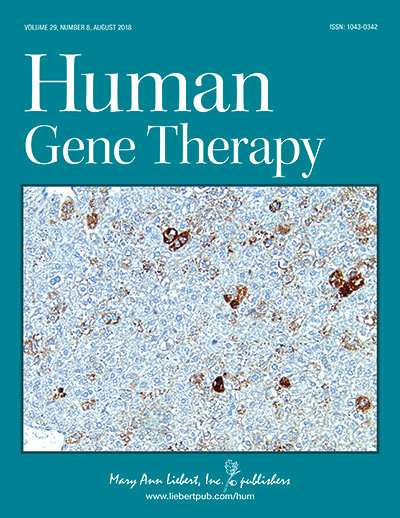Injection of novel gene therapy vector prolonged survival in mouse model of Pompe disease

A new study has shown that a single injection of a novel adeno-associated vector (AAV)-based therapy can result in improved enzyme activ-ity and glycogen clearance as well as prolonged survival in a mouse model of Pompe dis-ease. Young mice received an injection of AAVB1-GAA gene therapy, which delivers a normal copy of the gene for the lysosomal enzyme alpha glucosidase (GAA), which is mutated in Pompe disease, a lysosoma disease. The positive effects of gene replacement seen in adult mice are described in an article published in Human Gene Therapy.
The article entitled "Systemic Delivery of AAVB1-GAA Clears Glycogen and Prolongs Survival in a Mouse Model of Pompe Disease" was coauthored by Mai ElMallah, Uni-versity of Massachusetts Medical School, Worcester and a team of researchers from Uni-versity of Massachusetts Medical, Duke University, Durham, NC, and University of Flor-ida, Gainesville.
The key finding was the ability of a single systemic injection of AAVB1-GAA gene ther-apy vector to significantly prolong survival. The vector showed substantial activity in the heart, resulting in increased GAA enzyme activity and glycogen clearance in the myocar-dium. It also appeared to target the respiratory system and improve ventilatory measures.
"There are several aspects of this work that speak to the possibility of a more effective version of gene therapy for Pompe disease, an important cause of pediatric heart and res-piratory failure," says Editor-in-Chief Terence R. Flotte, MD, Celia and Isaac Haidak Professor of Medical Education and Dean, Provost, and Executive Deputy Chancellor, University of Massachusetts Medical School, Worcester, MA. "This translational research team combined the use of a new AAV capsid with the most sophisticated studies of car-diorespiratory physiology available in rodents to prove the concept that a one-shot thera-py could be effective in correcting the most important consequences of the disease."
More information: Allison M. Keeler et al, Systemic Delivery of AAVB1-GAA Clears Glycogen and Prolongs Survival in a Mouse Model of Pompe Disease, Human Gene Therapy (2018). DOI: 10.1089/hum.2018.016




















